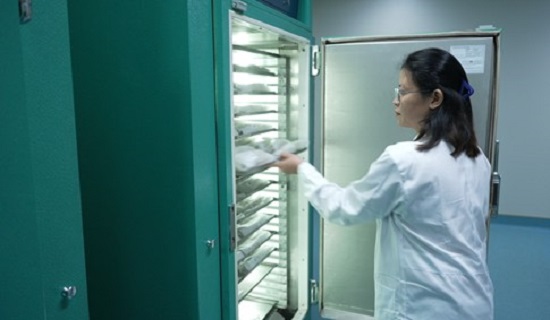Germination requirements: light

Most seeds germinate well in the dark. However, some small-seeded plants, such as lettuce, are adapted to growing on the surface of the soil: these do require light to germinate.
Seeds that require light may be sensitive to a minimum duration, intensity and especially quality of light. The wavelength can make a difference too – in some seeds red light promotes germination and blue or infra-red inhibits it. When working with light-sensitive species, it is usual to give 8 or 12 hours of light per day (24 hour period), with the light exposure corresponding with the warm phase if you are alternating the temperature as well.
The source of light can make a difference too: it is best to use low energy white fluorescent tubes or LEDs. Incandescent lamps can give out too much far-red light and heat. Of course, once the cotyledons have emerged and the seedling starts to photosynthesize, the presence of light takes on a whole new significance.
Alternating temperatures
